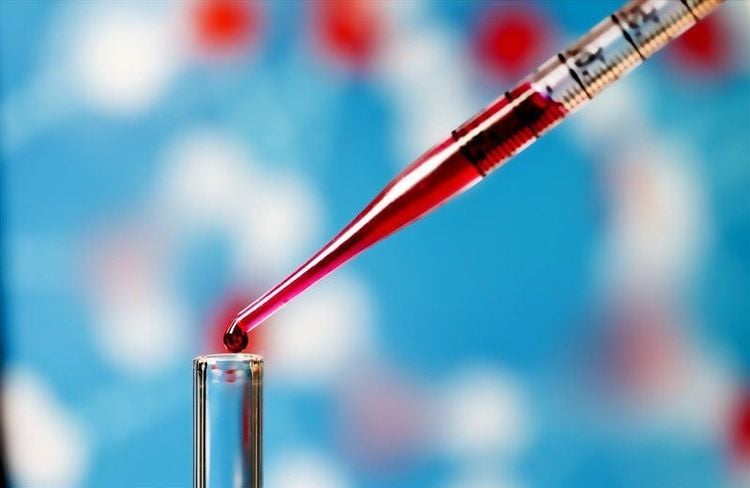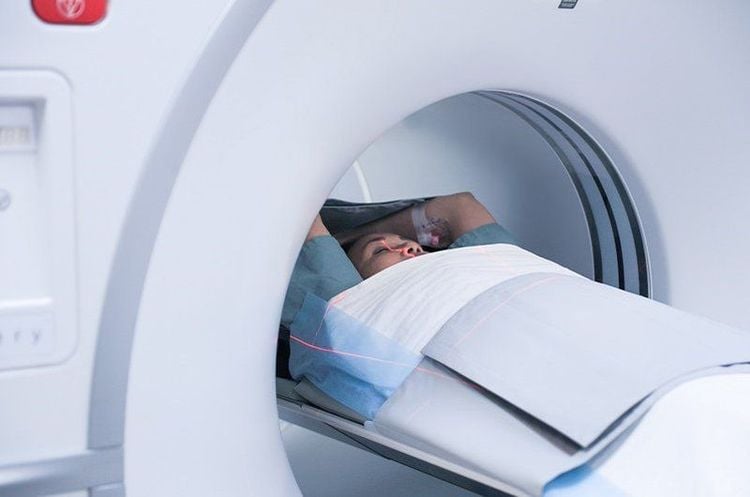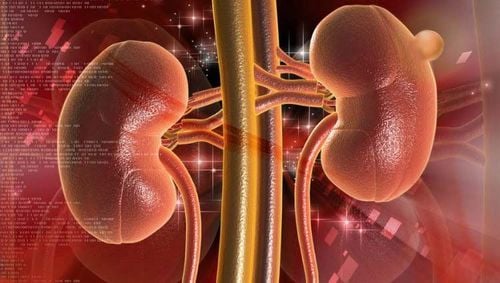This is an automatically translated article.
The article is professionally consulted by Master, Doctor Le Thi Minh Huong - Emergency Medicine Doctor - Department of Resuscitation - Emergency - Vinmec Nha Trang International General Hospital.Glomerulonephritis is an inflammation of the small filters in the kidneys. Tests for glomerulonephritis are usually urine tests for protein, red blood cells in the urine, or blood tests showing anemia, increased urea, and blood creatinine.
1. Glomerulonephritis syndrome
Glomerulonephritis is an inflammation of the small filters in the glomeruli. In it, platelets remove excess fluid, electrolytes and waste products from the patient's blood and pass it into the urine.
Glomerulonephritis can occur alone or as a complication of another disease, such as: lupus or diabetes. Severe or prolonged illness can damage the patient's kidneys. Depending on the type of glomerulonephritis, there will be an appropriate treatment.
Glomerulonephritis syndrome can appear suddenly (acute) or gradually (chronic), specifically as follows:
1.1 Acute glomerulonephritis Acute glomerulonephritis has manifestations such as back pain and hematuria , lead to oliguria or anuria.
The cause of glomerulonephritis is an inflammatory and proliferative immune mechanism of the glomerulus that leads to damage to the basal membrane, mesangial vessels, or endothelium. However, acute glomerulonephritis is not a disease, but rather a syndrome of acute glomerulonephritis - a severe form of glomerular damage, with various consequences as it progresses.
1.2 Chronic glomerulonephritis Most forms of acute glomerulonephritis have a certain rate of progression to chronic. Chronic glomerulonephritis is characterized by irreversible glomerulosclerosis, tubular damage, and eventually decreased glomerular filtration rate.
If the disease progresses and does not respond to treatment, it can lead to complications of chronic kidney disease, end-stage kidney disease and cardiovascular problems.
2. Diagnostic tests for glomerulonephritis

Is the frequency of symptoms constant or occasional? What improves or worsens symptoms? Is there a family history of glomerulonephritis or other kidney diseases? What is the patient's history of high blood pressure or diabetes? Glomerulonephritis is usually discovered when the patient notices many unusual signs in the passage of urine every day. Glomerulonephritis tests to evaluate kidney function and diagnose glomerulonephritis syndrome include:
2.1 Urinalysis A urinalysis can show red blood cells and a very small amount of blood present in the blood. patient's urine. This is a sign of kidney damage.
Urinalysis results also help find white blood cells - common signs of infection or inflammation and increased protein. Damage to the nephron (the functional unit of the kidney) will also be detected through this indicator. Other findings, such as elevated blood creatinine or urea levels, are also notable in the diagnosis of glomerulonephritis syndrome.
2.2 Blood tests Blood tests for glomerulonephritis can help your doctor know the extent of kidney damage, as well as kidney failure.
Test results are based on the concentration of waste products, such as anemia, may have increased blood urea nitrogen and creatinine. In blood tests, C3 complement is likely to be normal after about 8 weeks. Proteinuria can persist for up to 6 months, while microscopic hematuria can be up to 1 year from the time of onset of acute glomerulonephritis.

2.4 Kidney biopsy The doctor will use a special needle to remove small pieces of kidney tissue, which are then examined under a microscope to determine the cause of inflammation. A kidney biopsy is almost always the test for glomerulonephritis needed to make a final diagnosis.
3. Some notes when performing glomerulonephritis test
3.1. Preparing for your exam To prepare for your exam, you should ask your healthcare provider what you need to prepare in advance, such as fasting for some required tests. A list of the following information should then be made to fully present to the physician:Symptoms experienced, including those that do not appear to be related to kidney or urinary function; Time of onset of symptoms; All medications with the dosage you are taking, including vitamins or supplements; Important medical history of self and close family members; Questions to ask your doctor. In addition, it is advisable to visit the clinic with a relative or friend to help remember what the doctor has told you, as well as remind you of some information to give the doctor.
3.2. Questions to ask your doctor

How severe is the kidney damage? What tests for glomerulonephritis should be done? Is the condition temporary or chronic? Is there a risk of dialysis? How does glomerulonephritis affect other medical conditions? What to avoid or not to do? Do I need to see another, more suitable specialist? Can you get more information about glomerulonephritis through any reputable documents or websites? In addition, patients are also encouraged to freely ask other questions that they still have to be answered by the doctor.
Although there is no way to prevent forms of glomerulonephritis, people can limit their risk by promptly treating infections, such as HIV and hepatitis. At the same time well control blood sugar and high blood pressure to reduce the possibility of kidney damage.
Please dial HOTLINE for more information or register for an appointment HERE. Download MyVinmec app to make appointments faster and to manage your bookings easily.
Article referenced source: mayoclinic.org













